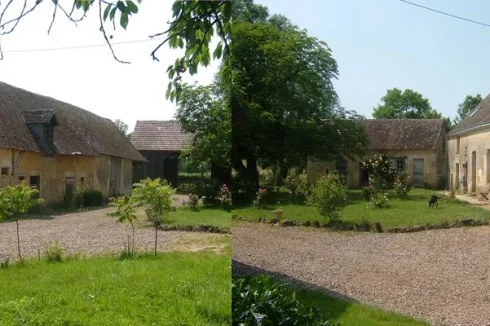French Income Tax Reduction for 2019/20
Tuesday 09 July 2019
The government have announced a reduction in income tax for next year, despite the worsening state of public finances.
Last month, in a direct response to the gilet jaunes protests that have taken place in France since the end of last year, the French Prime Minister, Edouard Philippe, announced a series of measures aimed at calming the discontent.
The headline announcement was a reduction in income tax, with changes proposed both in the rate and bands that will apply on 2020 income.
The first band up to €9,964 to which a 0% rate will continue to apply.
The principle change comes in the second band of income between €9,964 and €27,519, with a reduction in the rate from 14% to 11%, but also a reduction in the income threshold to which this rate applies, down to €25,405 from €27,519.
That will mean that those whose marginal rate is the third band of 30% will benefit less from the rate reduction in the second band.
Finally, there is also a reduction in the income threshold at which the 41% rate kicks in, from €73,779 to €72,644.
The final top rate and band are unchanged, so in summary the change is as follows: (UPDATE Dec 2019 - The amounts have been increased by inflation indexation. We will update in due course).
| Tax Band 2019 | Tax Band 2020 | Rate 2019 Income |
| Up to €9,964 | Up to €9,964 | 0 % |
| €9,965 to €27,519 | €9,964 to €25,405 | 14% (11% on 2020 income) |
| €27,520 to €73,779 | €25,406 to €72,643 | 30 % |
| €73,780 to €156,244 | €72,644 to €156,244 | 41 % |
| +€156,245 | + €151,245 | 45 % |
The government estimate that around 12 million households whose marginal rate is in the second band will gain an average of €350 a year, whilst the 5 million in the third band will gain an average of €180.
NB: Under the French tax system income is taxable on a sliced basis according to household 'parts', so do not infer from the table that, say, if your income is €35,000 pa you will pay income tax on your total income at the rate of 30%.
Deficit
The cost of this giveaway will be around €5 billion a year, so the price to pay will be a reduction in public expenditure, as the Prime Minister himself pointed out: "Soyons clairs : baisser les impôts de 5Md€, en une fois, nous obligera à faire des choix pour contenir nos dépenses publiques."
Although details of the reduction in expenditure have yet given, in his announcement the Prime Minister stated that they would include removing or reducing fiscal advantages to large companies, with the same for tax breaks that were 'anti-écologiques' (which appears to include that on red diesel used on off-road vehicles and plant), and to tax breaks granted to employers of salaried staff in certain sectors, eg building, aviation.
However, it is not merely the €5 billion in the loss of income tax receipts that the government needs to find, but substantially more due to other tax cuts made and proposed (not least, abolition of the taxe d'habitation), and the continued rise in public expenditure.
In May, the French National Auditor, the Cour de Comptes, published their review of the public accounts for 2018, stating that: 'Expenditure continues to increase, albeit at a slower pace, particularly the salary bill."
As a result, the level of the public deficit had risen, for the first time in three years.
And in further a report last month the auditors spoke of a "situation dégradée", "risques significatifs", and "évolutions préoccupantes."
In presenting the report Didier Migaud, president of the Cour de Comptes, stated that: "Our country must stop abandoning itself to one of its failings: that of always postponing efforts until later."
The highly regarded think tank IFRAP considers that even the figures presented by the auditors may understate the true level of the deficit. They consider the real deficit in 2018 was 3.0% of GDP (not the 2.5% that was announced), and forecast it to rise to 3.6% this year and to 4% in 2020. These figures are all above the level of the deficit agreed with the European Commission.
The auditors themselves point out that they were unable to obtain a completely clear picture of the state of national finances due to the manner by which the government presented the accounts, with some budgets simply not fully consolidated in the global balance sheet.
They conclude by stating: "The scope of expenditure of the general budget does not correspond to a complete and coherent vision of State expenditure."
Thank you for showing an interest in our News section.
Our News section is no longer being published although our catalogue of articles remains in place.
If you found our News useful, please have a look at France Insider, our subscription based News service with in-depth analysis, or our authoritative Guides to France.
If you require advice and assistance with the purchase of French property and moving to France, then take a look at the France Insider Property Clinic.





